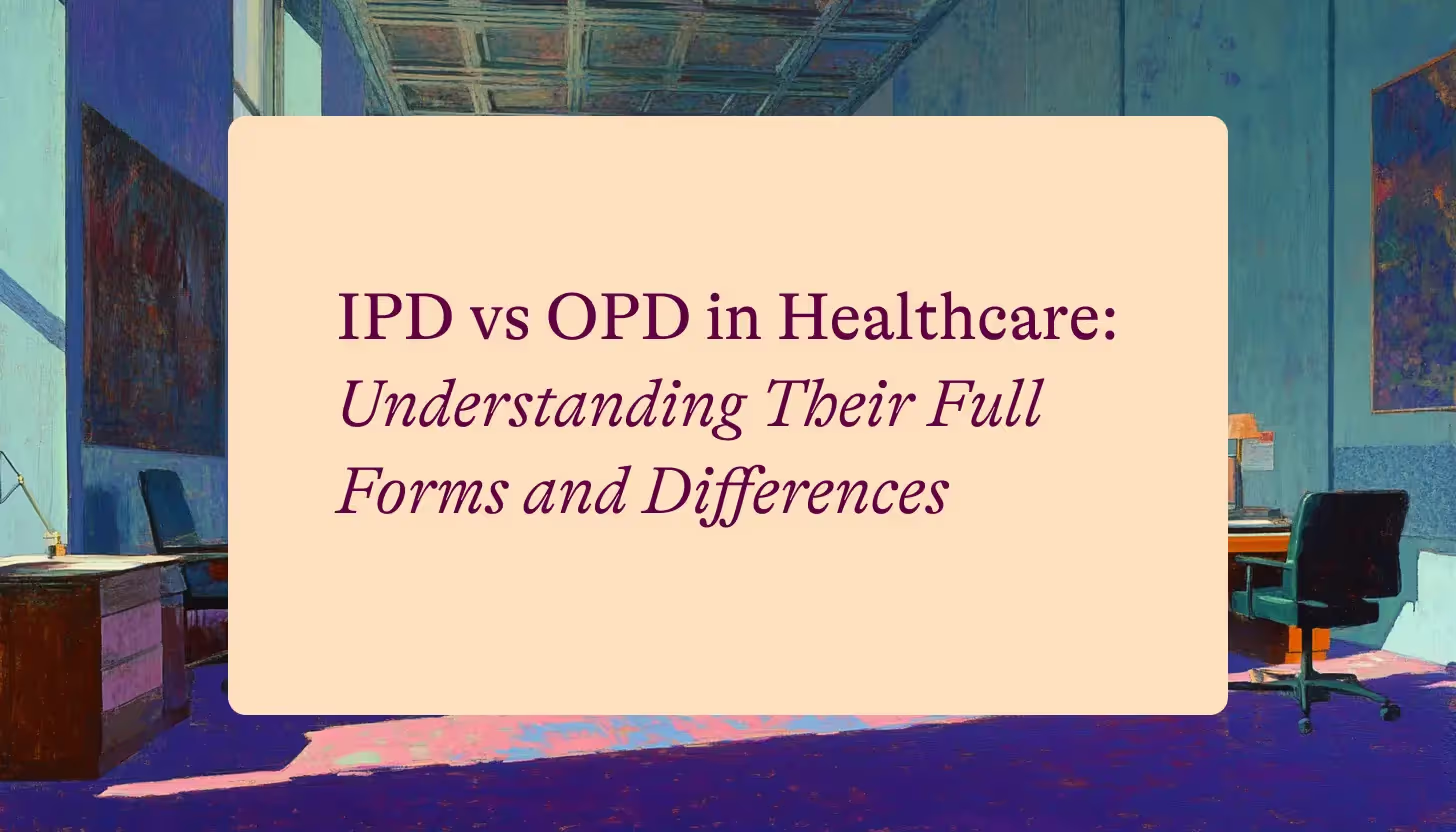In the realm of employee benefits, understanding the distinctions between various schemes is vital. Workers' Compensation and Employee State Insurance (ESI) are two crucial programs designed to safeguard the interests of employees. While both aim to provide financial support during challenging times, they differ significantly in their scope, coverage, and legal framework. This comprehensive guide will talk about intricacies of Workers' Compensation and ESI, elucidating their nuances, benefits, and the legal obligations associated with each.
The Legal Framework Governing Employee Benefits
Before delving into the specifics of Workers' Compensation and ESI, it is imperative to grasp the legal underpinnings that govern these employee benefit programs. Each country has its own set of regulations, statutes, and guidelines that dictate the obligations of employers and the rights of employees concerning workplace injuries and health-related issues. Understanding this legal framework is essential for both employers and employees to navigate the complex landscape of workers' benefits.
Workers' Compensation Explained
What is Workers' Compensation?
Workers' Compensation, often referred to as workers' comp, is a state-mandated insurance program that provides financial and medical benefits to employees who suffer job-related injuries or illnesses. It is a no-fault system, meaning that employees are entitled to receive benefits regardless of who is at fault for the injury.
Scope and Coverage
Benefits and Compensation
Under the Workers' Compensation system, employees are eligible for various benefits, including medical expenses, disability pay, and rehabilitation costs. Medical expenses encompass all necessary and reasonable medical treatments related to the injury, such as doctor visits, surgeries, and prescription medications.
Medical Expenses
Workers' Compensation covers medical expenses incurred due to job-related injuries or illnesses. This includes doctor's visits, hospital stays, surgeries, prescription medications, and other necessary treatments. The aim is to ensure that employees receive prompt and appropriate medical care to facilitate their recovery and return to work.
Disability Pay
In the event that an employee is temporarily or permanently unable to work due to a workplace injury, Workers' Compensation provides disability pay. Temporary disability benefits are paid when the employee is temporarily unable to perform regular job duties, while permanent disability benefits are provided if the injury results in a permanent impairment that affects the employee's ability to work.
Rehabilitation Costs
Workers' Compensation also covers rehabilitation costs, including physical therapy, vocational training, and job placement services. These services are aimed at helping employees regain their skills and capabilities, enabling them to reintegrate into the workforce successfully.
Employee State Insurance (ESI) Demystified
What is Employee State Insurance?
Employee State Insurance (ESI) is a self-financing social security and health insurance scheme for Indian workers. It is a contributory fund where both employers and employees make regular contributions to the fund, ensuring financial protection during times of need.
Eligibility Criteria
ESI coverage is extended to employees earning a specific wage threshold, typically below INR 21,000 per month. It encompasses various benefits, including medical care, sickness benefits, maternity benefits, and disablement benefits.
Contributions and Funding
ESI is funded through contributions from both employers and employees. Employers are required to contribute a percentage of the employee's salary, while employees also make a smaller contribution towards the scheme. These contributions are utilized to fund the ESI scheme, providing comprehensive health and social security benefits.
Health Benefits
ESI offers a wide range of health benefits, including medical consultations, hospitalization, diagnostic tests, medicines, and specialist consultations. These benefits are available to covered employees and their dependents, ensuring access to quality healthcare services without the burden of high medical expenses.
Family Welfare and Maternity Benefits
Apart from health benefits, ESI provides family welfare benefits, including financial assistance during times of unemployment, maternity benefits, and financial support in case of the insured person's death. Maternity benefits cover prenatal and postnatal care, along with paid leave for expecting mothers.
Side-by-Side Comparison
Key Differences Between Workers' Compensation and ESI
Understanding the differences between Workers' Compensation and ESI is crucial for employers and employees alike. While Workers' Compensation primarily focuses on workplace injuries and illnesses, ESI offers a broader spectrum of benefits, including healthcare, sickness benefits, and maternity benefits. The funding mechanisms and eligibility criteria also vary between the two programs, shaping the scope of coverage for employees.
Case Scenarios: When to Use Which?
Navigating the choice between Workers' Compensation and ESI can be challenging, especially when specific situations arise. Employers must assess the circumstances, considering the nature of the injury or illness, the employee's eligibility for ESI, and the applicable legal regulations. By understanding the nuances of each program, employers can make informed decisions, ensuring that their employees receive the necessary support and benefits.
Legal Obligations and Rights
Employers' Responsibilities
Employers have legal obligations concerning both Workers' Compensation and ESI. Under Workers' Compensation laws, employers are mandated to provide a safe working environment, report workplace injuries promptly, and cooperate with the claims process. Failure to comply with these obligations can lead to legal consequences and financial penalties.
In the case of ESI, employers are responsible for deducting the employee's contribution from their salary and depositing it along with the employer's contribution to the ESI fund. Employers must also register eligible employees for ESI coverage, maintain accurate records, and facilitate the submission of claims when necessary.
Employees' Rights
Employees have the right to a safe workplace and compensation in case of workplace injuries or illnesses. They are entitled to medical treatment, disability benefits, and rehabilitation services under Workers' Compensation. Additionally, employees covered under ESI have the right to avail of healthcare services, sickness benefits, maternity benefits, and other social security benefits as outlined in the ESI scheme.
Navigating Claims and Disputes
Filing a Claim: A Step-by-Step Guide
Filing a claim under both Workers' Compensation and ESI requires adherence to specific procedures outlined by the respective programs. Employees must report workplace injuries promptly and seek medical attention. Employers play a crucial role in assisting employees with the claims process, ensuring that all necessary documentation is submitted accurately and within the stipulated timeframes.
Common Pitfalls and How to Avoid Them
Navigating claims and disputes can be challenging, with various pitfalls that both employers and employees must be aware of. Common pitfalls include incomplete or inaccurate documentation, delayed reporting of injuries, and lack of cooperation from either party. To avoid these pitfalls, employers and employees must familiarize themselves with the requirements of Workers' Compensation and ESI, maintain meticulous records, and seek legal guidance if disputes arise.
Conclusion: Ensuring Comprehensive Employee Protection
The Future of Workers' Benefits
As workplaces evolve and labor laws adapt to changing dynamics, the landscape of workers' benefits is expected to undergo significant transformations. Employers and employees must stay abreast of these changes, ensuring compliance with updated regulations and providing comprehensive protection to the workforce.
In conclusion, understanding the nuances of Workers' Compensation and Employee State Insurance is imperative for both employers and employees. By comprehending the scope, coverage, legal obligations, and benefits associated with these programs, employers can create a safer work environment, while employees can access the necessary support and resources during times of need. By navigating the complexities of workers' benefits with knowledge and diligence, employers and employees can foster a harmonious workplace, fostering trust and security within the workforce.
FAQs: Your Questions Answered
Q: What is the primary difference between Workers' Compensation and Employee State Insurance (ESI)?
Workers' Compensation and Employee State Insurance (ESI) differ in their scope and coverage. Workers' Compensation primarily focuses on providing financial and medical benefits to employees who suffer job-related injuries or illnesses, regardless of fault. ESI, on the other hand, is a broader social security and health insurance scheme covering healthcare, sickness benefits, maternity benefits, and more. While both aim to provide support, ESI offers a wider range of benefits beyond workplace injuries.
Q: Are all employees eligible for Workers' Compensation and ESI benefits?
Workers' Compensation eligibility varies based on the specific laws and regulations of each country. Generally, employees injured or disabled due to work-related incidents qualify for Workers' Compensation benefits. ESI eligibility depends on the employee's monthly wage, with those earning below a certain threshold being eligible. Employers and employees need to check local regulations to determine eligibility criteria for both schemes.
Q: Can an employee receive benefits from both Workers' Compensation and ESI simultaneously?
In some cases, employees may be eligible for benefits from both Workers' Compensation and ESI, but the specifics depend on the nature of the injury or illness and the regulations in place. Typically, if an employee qualifies for benefits under both schemes, they can receive compensation for different aspects, such as medical expenses from Workers' Compensation and healthcare services from ESI. However, it's essential to consult legal experts or relevant authorities for precise information in specific situations.
Q: What are the legal obligations for employers regarding Workers' Compensation and ESI?
Employers have distinct legal obligations concerning Workers' Compensation and ESI. Under Workers' Compensation, employers must provide a safe working environment, report workplace injuries promptly, and cooperate with the claims process. For ESI, employers are responsible for deducting and depositing the contributions of both employees and employers, registering eligible employees, and facilitating the submission of ESI claims. Failure to fulfill these obligations can lead to legal consequences and financial penalties.
Q: How can employees ensure their rights are protected in the event of workplace injuries or illnesses?
Employees can protect their rights by promptly reporting workplace injuries or illnesses to their employers and seeking medical attention. It's crucial to document the incident, keep records of medical treatments, and communicate effectively with both employers and medical professionals. If there are disputes or issues concerning Workers' Compensation or ESI claims, employees should seek legal advice or assistance from relevant government agencies.
.avif)










.avif)














